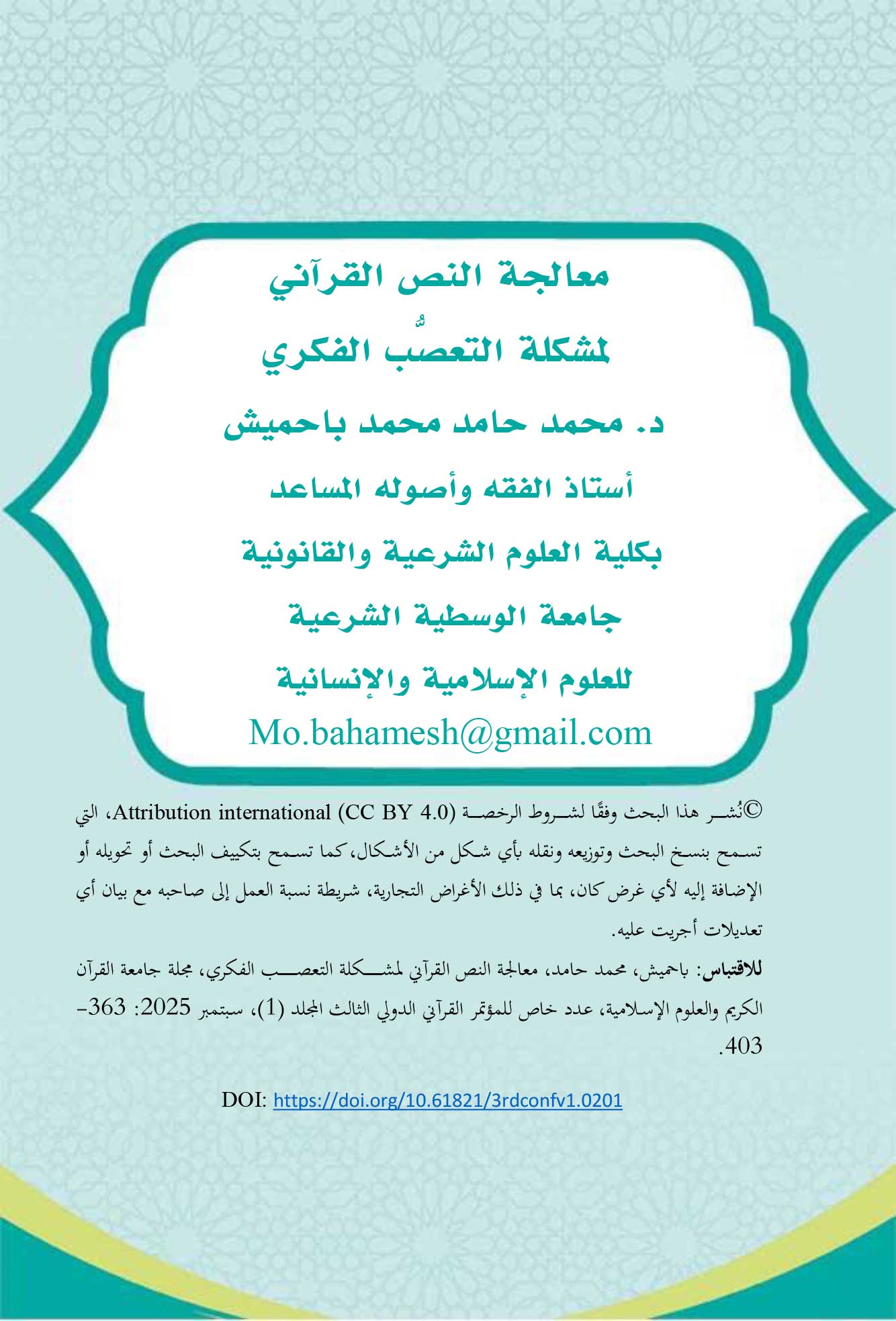Addressing the Qur'anic Text Toward the Problem of Intellectual Fanaticism
DOI:
https://doi.org/10.61821/3rdconfv1.0201Keywords:
Fanaticism, extremism, ideology, danger, treatments, the Holy QuranAbstract
Among the trials that have afflicted the Islamic nation—both in the past and present—is the phenomenon of fanaticism toward one’s own opinion. This has ravaged our societies, consuming the fruitful and the barren alike, especially in modern times. Muslims have become divided as a result, splintering from the path of Allah into opposing and conflicting groups. Each person holding an opinion believes with certainty that their view is the absolute truth, allowing no room for error, while considering the views of others as completely mistaken with no possibility of being correct. This intellectual intolerance has deeply affected the fabric of Arab and Islamic societies in general—and our country in particular. Holy Qur’an has warned us against falling into such behavior.
Intellectual fanaticism refers to the closed-mindedness of thinking in a unilateral way: rejecting, denying, and refusing to acknowledge, accept, or respect other viewpoints—or even engage in dialogue with them. This stands in contrast to the principle that embraces diversity and the multiplicity of opinions. Qur’an addressed this issue through numerous peaceful and preventative approaches, all of which prioritize human rights. This research highlights the concept of fanaticism, its manifestations as mentioned in Qur’an, its causes and consequences on individuals and societies, and how Qur’an proposes to address this dangerous phenomenon.
Downloads

Downloads
Published
Issue
Section
License
Copyright (c) 2025 Journal of the University of Holy Quran and Islamic Sciences

This work is licensed under a Creative Commons Attribution 4.0 International License.
©This article is an open access article distributed under the terms and conditions of the Creative Commons Attribution (CC BY) license












